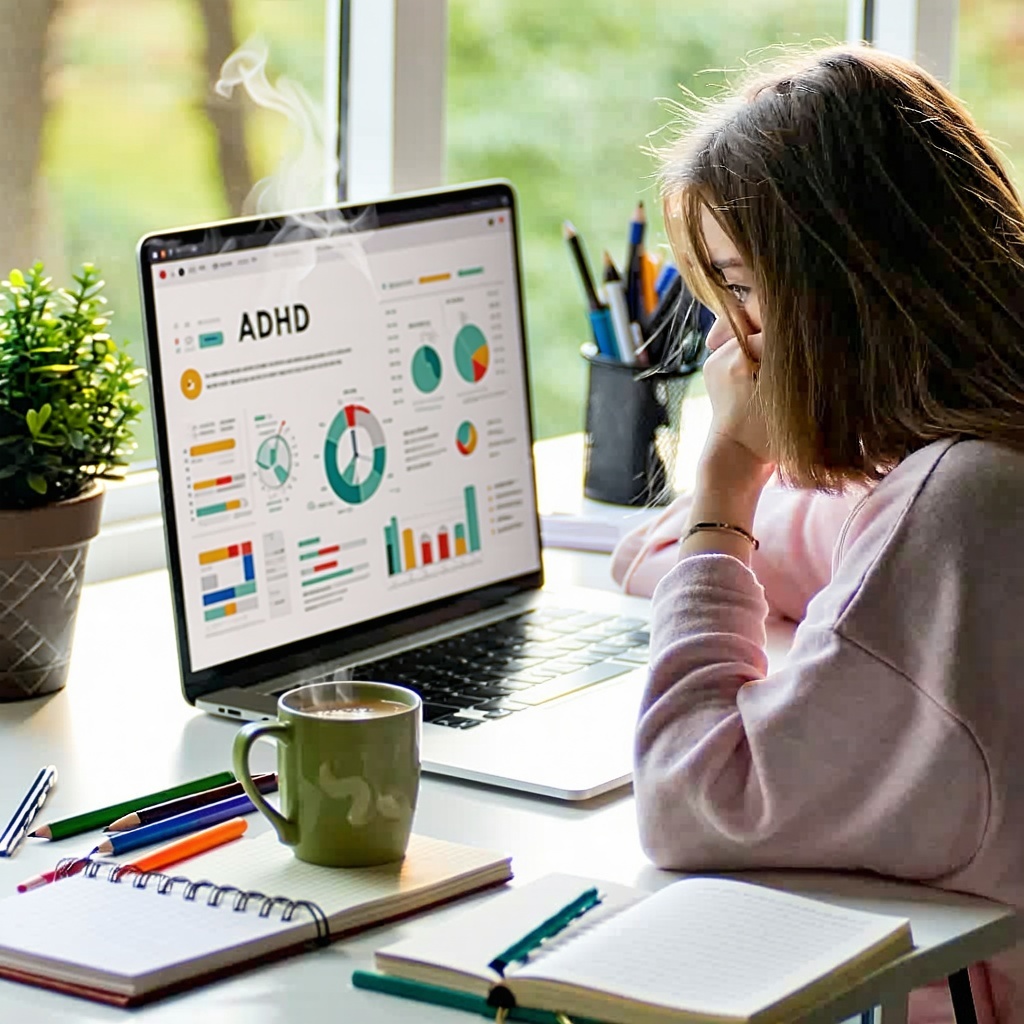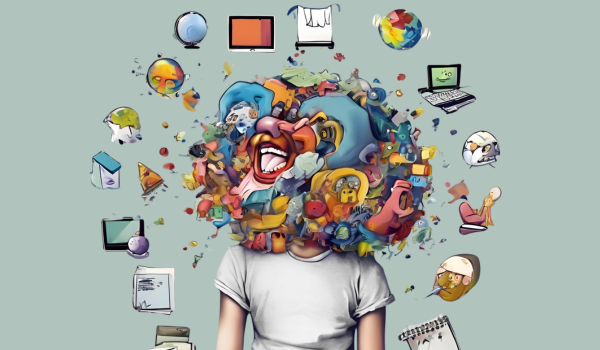ADHD Myth Busting
ADHD is one of the most well-known and talked about mental health issues in the U.S., but that also means there are plenty of myths out there that...
4 min read
 Monique Cohen, APRN, PMHNP-BC
:
Jun 24, 2025 11:27:45 AM
Monique Cohen, APRN, PMHNP-BC
:
Jun 24, 2025 11:27:45 AM

Let’s set the record straight: taking medication for ADHD is not a shortcut, a personality transplant, or a moral failure.
You’re not trying to become a robot. You’re not trying to be perfect. You’re just trying to get through your day without losing your keys, your focus, and your last nerve.
If that sounds about right-keep reading.
Whether you’ve just been diagnosed or you’ve been side-eyeing the idea of ADHD medication for a while now, this guide will walk you through what these medications do (and don’t do), the different types, and how to know if it’s the right move for you.
Attention-Deficit/Hyperactivity Disorder (ADHD) isn’t just about being “hyper” or “easily distracted.” It’s a neurodevelopmental condition that affects how your brain regulates attention, impulses, motivation, and even emotional responses.
ADHD can look like:
Basically, your brain is capable-it just needs a little help coordinating its orchestra.
That’s where medication can step in.
The main goal of ADHD medication is to improve the brain’s ability to regulate attention, motivation, and impulse control. It’s not a sedative. It doesn’t dull your personality. And no-it won’t turn you into someone who color-codes their sock drawer (unless that’s your dream, in which case, go wild).
Think of it like glasses for your brain. You could technically go without them, but once you put them on, the world comes into focus.
There are stimulants and non-stimulants-and no, “stimulant” doesn’t mean you’re bouncing off the walls.
Let’s break them down.
Stimulants are the most commonly prescribed and also the most effective for most people with ADHD. They increase dopamine and norepinephrine-neurotransmitters involved in focus, motivation, and executive function.
Stimulants can work within 30–60 minutes. It’s one of the few medications in mental health where you’ll usually feel the effects the same day.
For people who don’t tolerate stimulants well-or have other conditions like anxiety, tics, or a history of substance misuse-non-stimulants are a great alternative.
Nope. It will still be your brain-just a little more organized and able to follow through.
Most people report feeling:
“More focused.”
“Able to pause before reacting.”
“Not as overwhelmed by everything all at once.”
If it makes you feel “flat,” “over-focused,” or too wired, that’s a sign to adjust the dosage or try a different med. You should feel more like yourself-not less.
Early side effects are common but often settle within a week or two.
If side effects persist, there are plenty of options to tweak things. It’s not one-size-fits-all.
Let’s clear this up.
Stimulant medication is not addictive when taken as prescribed under medical supervision. In fact, untreated ADHD itself increases the risk of substance misuse-because people are often trying to self-medicate the overwhelm.
Many people feel more in control and less likely to seek out impulsive behaviors once they’re on the right medication.
You might notice changes like:
It's often subtle-but powerful. You’re not suddenly operating on a different level of intelligence. You’re just able to use your brain’s natural strengths more consistently.
Not always.
Some people take meds only on workdays or school days. Others take them every day to support consistency. Long-acting versions are helpful for smoother coverage, but there’s flexibility in how they’re used. Your provider can work with your needs and goals.
You’re not alone. Many people with ADHD also struggle with anxiety, depression, or emotional dysregulation. The good news is: treating ADHD can improve these symptoms, especially when the overwhelm and chronic underachievement start to lift.
That said, sometimes medication for both ADHD and anxiety/depression is appropriate-and totally doable with the right plan.
Welcome to the club-many adults are only now realizing that what they thought was “just anxiety,” “laziness,” or “being bad with time” is actually ADHD.
Medication can still be extremely helpful at any age. Your brain hasn’t missed the window to benefit. And getting support now? That’s powerful.
ADHD medication is helpful, but not a magic wand. Most people get the best results when combining it with:
Taking medication for ADHD isn’t “cheating.” It’s not giving up. It’s giving yourself a shot at functioning more consistently, with less chaos and more clarity.
You still get to be creative, curious, and dynamic-you just might lose your keys a little less often and get out the door without a meltdown.
There’s no gold star for doing life the hard way. If medication helps your brain work with you instead of against you, that’s not weakness-that’s wisdom.
So, if you’re curious, talk to a provider. Ask questions. Be honest about your goals and concerns. It’s not about changing who you are. It’s about unlocking the version of you that’s been there all along-just buried under a few piles of mental clutter.
And if that comes with a side of finally remembering where you parked your car? Even better.

ADHD is one of the most well-known and talked about mental health issues in the U.S., but that also means there are plenty of myths out there that...

Let’s start with the obvious: sleep is not a luxury. It’s not something you “earn” after a productive day. It’s not a bonus round. It’s a biological ...

Let’s be honest-if you’re living with PTSD, you’re not just carrying emotional pain. You’re carrying it in your body, your sleep, your relationships,...